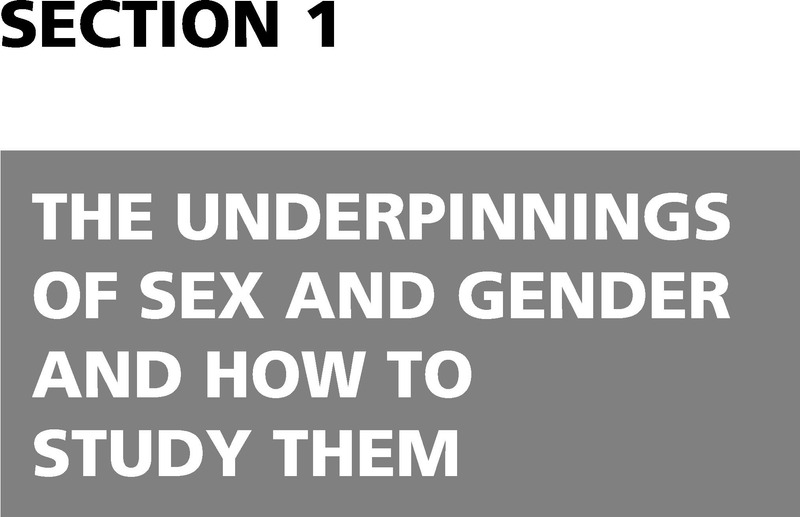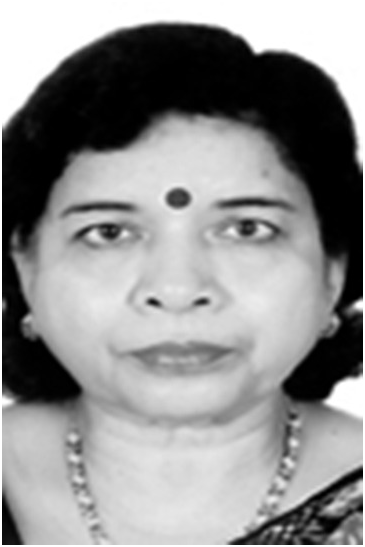Published online by Cambridge University Press: 20 July 2020

Rekha Pande is the Head and founding member of the Centre for Women’s Studies and a Professor and former Head of the Department of History at the University of Hyderabad, India. She was also the founding member of the Center for Women’s Studies at Maulana Azad National Urdu University. She chaired the 12th Women’s World Congress in India, 2014. She has been a visiting Professor at University of London, University of Bristol, University of Buffalo, Maison de Research, Paris, and University of Artois. Her work is in the interdisciplinary area of history and women’s studies. She has published eighteen books and over a hundred papers and chapters in national and international journals, proceedings and books. She has been the editor of International Feminist Journal of Politics (IFJP) and Foreign Policy Analysis. Pande was born in northern India in the Himalayan region of the present state of Uttrakhand. As her father was an Indian Army officer who was posted every three years, she grew up in different states of India. During the early stage of her career, she spent summer and winter vacations visiting her husband who is a scientist working in Zambia, Zimbabwe, and Uganda. She now spends her summers visiting her children who have settled in the United States.
Wen Liu is Assistant Professor of Women’s, Gender, and Sexuality Studies at University at Albany, State University of New York. Liu is currently working on a book titled Assembling Asian American: Psychological technologies and queer subjectivities, where she draws from queer theory, affect, and diasporic postcolonial studies to examine how psychology as a scientific discipline has created Asian Americanness as a measurable, biocultural population through a Eurocentric gaze. Her research has been published in internationally recognized journals such as Feminism & Psychology, Subjectivity, American Quarterly, and Journal of Asian American Studies. She is currently co-editing a special issue on “Feminisms and decolonizing psychology” for the journal Feminism & Psychology. Liu was born in Taipei, Taiwan, and moved to the USA when she was 16 where she studied and stayed on for her career. She still strongly considers herself as a Taiwanese person politically, and identifies as a queer person of color.
Hsunhui Tseng is Assistant Professor in the Gender Studies Programme at the Chinese University of Hong Kong. Her research interests include globalization, marriage and family, transnational migration and human trafficking, student mobility, gender, class and race, identity politics, Taiwan, China, Hong Kong, and Southeast Asia. She is working on a manuscript tentatively titled Stratified foreign bodies: Commodified transnational marriage and the brokerage industry in Taiwan. Her works appear in journals such as Asian Anthropology, Cross-Currents: East Asian History and Cultural Review, and Hong Kong Journal of Social Sciences. The courses she teaches at CUHK cover feminist methodology, gendered migration in Asia, family and society, and the intersectionality of gender, sexuality, and race throughout the world. Tseng was born in Taiwan where she attended her undergraduate studies and then went to the United States where she obtained her master’s and PhD degrees at the University of Washington, Seattle. She is currently a single mother working in Hong Kong.
Steven Gangestad is Distinguished Professor of Psychology at the University of New Mexico. He received his BA from Stanford University and his PhD from University of Minnesota. His research covers topics in evolutionary behavioral science, primarily on processes that affect human romantic relationships, which he has largely explored through frameworks inspired by evolutionary biology. He has published over 130 refereed journal articles with 26,500 citations, h-Index = 70, Google Scholar. He is currently Associate Editor of Psychological Science.
Lei Chang is Chair Professor of Psychology and Head of Department of Psychology, University of Macau. Born in China, Chang received his BA from Hebei University and his PhD from University of Southern California. He has previously taught at the University of Central Florida and the Chinese University of Hong Kong. He conducts research in the areas of evolutionary psychology, including cultural evolution, life history, and mating research, and developmental psychology focusing on parenting, and child and adolescent social development. He has published over 200 refereed journal articles (70% in English outlets) with over 16,000 citations, h-Index = 54, by Google Scholar.
E. Sandra Byers is Professor and Chair in the Department of Psychology at University of New Brunswick in Fredericton, New Brunswick, Canada and a Research Fellow of the Royal Society of Canada. She is the author or co-author of more than 180 journal articles and book chapters, mostly on aspects of human sexuality, as well as of a popular textbook on human sexuality. Byers is a past president of the International Academy of Sex Research and the Canadian Sex Research Forum, a fellow of the Society for the Scientific Study of Sexuality and the Canadian Psychological Association, and is on the editorial boards of a number of scholarly journals. She has won numerous awards including the Donald O. Hebb Award for Distinguished Contribution to Psychology as a Profession from the Canadian Psychological Association in 2010, the Kinsey Award for outstanding contributions to the field of sex research, sex therapy, or sexology from the Society for the Scientific Study of Sexuality in 2013, and the Outstanding Contribution Award from the Canadian Sex Research Forum. She is also a licensed clinical psychologist with a part-time private practice primarily focused on the treatment of sexual concerns and problems.
Karen L. Blair is an Assistant Professor of Psychology and has affiliations with St. Francis Xavier, Acadia and Trent Universities in Nova Scotia and Ontario, Canada, is founder of KLB Research and president of LGBTQ Psychology Canada. Blair studies the role that social support for relationships plays in the development, maintenance, and dissolution of relationships, sexuality in same-sex relationships, LGBTQ psychology, Holocaust education, and the connections between relationships, social prejudices, and health. More information about her work can be found on her website: www.drkarenblair.com. Blair grew up in Winnipeg, Canada and has lived in Manitoba, Ontario, Nova Scotia, and Utah (United States). She attended University of Guelph, Acadia, and Queen’s University in Canada with a postdoc at the University of Utah. Blair taught English in Thailand, and has spent significant amounts of time in Prague, Czech Republic. She has international collaborations in the United States, the United Kingdom, the Czech Republic, Turkey, and New Zealand. Blair currently lives in Peterborough, ON with her wife, who is also an academic, and their three dogs.
Anna Grabowska was born and grew up in Poland when it was a Communist country. Living in a country behind the “iron curtain” made it very difficult to have access to international scientific publications and to establish contacts with other scientific groups in the West. The Solidarity breakthrough and then the accession of Poland to the European Union opened new opportunities for her professional and personal development. In the 1980s, she obtained six months of postdoctoral training in Padua (Italy). Grabowska is Professor of Psychology at the University of Social Sciences and Humanities, Warsaw, and Professor Emerita of Biology at the Nencki Institute of Experimental Biology, Polish Academy of Sciences, where she led the Psychophysiology Laboratory until 2018. In 2016 she was elected a member of the Polish Academy of Arts and Sciences. From 1998 to 2004 she was a Professor of Psychology at Jagiellonian University, Krakow. She served on the executive committee of the European Brain and Behaviour Society (1994–1997, 2000–2003) and in 2010 she co-chaired the Mid-Year Meeting of the International Neuropsychological Society in Krakow. Her expertise is in understanding the neural networks underlying cognitive function in humans, hemispheric asymmetry, and sex differences. Her research focuses on brain dysfunction (including dyslexia), combining behavioral, cognitive, neuroimaging, and electrophysiological (ERP) approaches. She has three children and six grandchildren. She enjoys her hobbies: skiing, Argentine tango, and gardening.
Lise Eliot is Professor of Neuroscience at the Chicago Medical School of Rosalind Franklin University. Her research addresses brain and gender development, especially the role of neuroplasticity in shaping neural circuitry and behavior. She is the author of two books: What’s going on in there? How the brain and mind develop in the first five years of life (1999) and Pink brain, blue brain: How small differences grow into troublesome gaps (2009). A Chicago native, Eliot received an AB degree magna cum laude in History and Science from Harvard University and a PhD in Cellular Physiology and Biophysics from Columbia University, and she completed a postdoctoral fellowship in the Division of Neuroscience at Baylor College of Medicine.
To save this book to your Kindle, first ensure [email protected] is added to your Approved Personal Document E-mail List under your Personal Document Settings on the Manage Your Content and Devices page of your Amazon account. Then enter the ‘name’ part of your Kindle email address below. Find out more about saving to your Kindle.
Note you can select to save to either the @free.kindle.com or @kindle.com variations. ‘@free.kindle.com’ emails are free but can only be saved to your device when it is connected to wi-fi. ‘@kindle.com’ emails can be delivered even when you are not connected to wi-fi, but note that service fees apply.
Find out more about the Kindle Personal Document Service.
To save content items to your account, please confirm that you agree to abide by our usage policies. If this is the first time you use this feature, you will be asked to authorise Cambridge Core to connect with your account. Find out more about saving content to Dropbox.
To save content items to your account, please confirm that you agree to abide by our usage policies. If this is the first time you use this feature, you will be asked to authorise Cambridge Core to connect with your account. Find out more about saving content to Google Drive.







